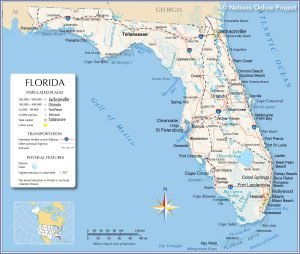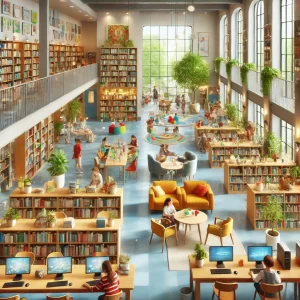How To Fix The Problems Of Closed-Loop Economics
I must say, I enjoy watching people argue about economics. Apparently, you don’t even need to be someone who majored in economics in college and a faculty position at a state university to discuss it. You just need to have gotten an A in your high school English class, know how to keep your cool in a heated debate, and remember some of the highlights from that economics class you took as an elective if you want to at least come off as an articulate person who isn’t bitter about your particular situation in life. I’ve watched debaters go around and around for hours about the pros and cons of the usual economic models. I’ve watched people freak out about the fact that some career fields are going to be obsolete in their lifetimes. They seem to ignore the fact that, when you get on the scale of the much-vaunted global economy, all economic systems reside in a closed-loop system.
That’s right, closed-loop. There aren’t too many resources leaving Earth except for maybe the occasional interplanetary probe. There aren’t too many resources coming in to Earth except for maybe the occasional meteor that is big enough to make it through the atmosphere without burning up – and we all know about the asteroid that killed the dinosaurs, right? The dinosaurs found out fast that a closed-loop system might not survive something coming in hot and fast. Resources flow back and forth, forth and back, all over the world and nobody gets grossed out by the fact that the next tall glass of water you drink could contain molecules that once passed through Aristotle. That’s how well stuff gets reused by a perfect closed-loop system.
As the Great Depression and Great Recession both proved, such a system can be vulnerable to crumbling in one of the basic pillars that supports it. Employment is seen as one of the major indicators of economic health. If most people are gainfully employed, that means most people get a regular paycheck that they can spend on goods and services. Problems arise if unemployment or underemployment rise above a certain point because that means that, first, some people aren’t being as productive as they could be and, second, more people aren’t earning the money they need to pay for goods and services. Guaranteed basic income is one popular idea that’s been floating around, but the whole point of a closed loop system is that the resources have to come from somewhere within the system. In plain English, “Who’s going to pay for it?” That makes a closed-loop system vulnerable.
The system is already beginning to change rapidly. I’ve mentioned in other blog entries that many jobs are inevitably going to be automated. A typical desktop 3D printer can spit out chess pieces and vases, which cuts out most of the factories and factory workers that used to dominate the process. You can talk about retraining those former factory workers for new careers but can’t change the fact that innovations like 3D printing make manufacturing less labor intensive. That doesn’t mean that we should outlaw innovation. It just means that we should make tweaks to the system.
Easy to say but harder to do, right? I’ve tried to get that across to several people, too. I even promised one friend that I’d at least give him a virtual smack across the head when I thought he was being unrealistic. Even when somebody has a good idea, I sometimes wonder if they comprehend that they’re trying to change a system that includes seven billion humans and growing. Pointing out the problems that are inherent in any closed loop system is the easy part. Solving those problems is the complicated part.
The opposite of a closed loop system would naturally be an open system where resources can flow easily between distinct sub-systems. It would be like watching a sped-up version of the history of Earth’s worldwide ecosystem. When one area’s biome collapses, others expand or evolve to take its place. Mass extinction events are manageable in the long run because evolution constantly works to fill the gaps even when the organisms it creates to fill the slots don’t look exactly the same as whatever existed before the mass extinction. Compare this to a closed-loop system like most aquaculture systems and you’ll probably hear from experienced professionals in this field about how difficult it can be to keep everything balanced just right so the entire system doesn’t collapse on them. Could the same principles of an open system be applied to the problems of the current closed-loop economic system we have now?
If you’ve been keeping the fact that we’re dealing with a global economy in the back of your head, you might see what I’m getting at here. People who complain about anything related to the economy seem to forget the fact that we’re all sitting on the same planet and the human species has pretty well expanded into every land that’s, well, land. (I don’t count vast sheets of ice for the sake of discussion here. And anyway, international law can be inconvenient.) There just aren’t that many places for dispossessed populations to go unless they start building seasteading platforms or they can contact some nation who is open to the idea of taking in refugees who don’t have much except what they were able to carry out with them. If neither sounds like a viable option, the development of a viable space settlement program would make for a good third option for blasting open the closed-loop system we’ve had to put up with.
Before you howl that refugees would never be able to form a space colony due to finances, keep in mind that several companies were formed by wealthy investors specifically to provide financial backing for the original American colonies. The colonists were often people who couldn’t have afforded to leave Europe on their own but jumped at the opportunity to get away from a European socioeconomic system that would have shut them out for a variety of reasons. Call it a relief valve if you want. It gave the have-nots of European society somewhere to go. The same can be true when it comes to colonizing space if more rich backers are willing to provide the needed opportunities.
This provides a way out of the closed-loop economic systems and boasts the added benefit of providing a leak in the worldwide system. It’s not really closed when resources are flowing out of it. Resources will eventually also start flowing into a closed-loop system that has already been breached by permanent human habitats on planets like Mars when new innovations and resources start flowing back to Earth.
I would not underestimate the potential value when billions of dollars are remitted to the Phillippines annually by Filipinos who took jobs in foreign nations so that they could help their families. When recent estimates show that raw materials throughout the solar system could be worth as much as $100 billion for every individual that is alive today, remittances back to Earth from scattered space settlements could make Filipinos remittances look like small potatoes once things really get rolling.
Earth exports labor and imports the raw materials that aren’t being used for space-related construction projects. Innovations created by the residents of off-world settlements to make their own lives better can be licensed back on Earth to help make the lives of ground-pounders back home better too. The Terran planet-wide economy would no longer be a closed-loop system that wrestles with itself to remain stable. Instead, it would become part of a more open economy that includes the entire solar system.
Economics Textbooks
[simple-rss feed=”http://rest.ebay.com/epn/v1/find/item.rss?keyword=economics&categoryId1=267&sortOrder=BestMatch&programid=1&campaignid=5337337555&toolid=10039&listingType1=All&lgeo=1&feedType=rss” limit=10]








